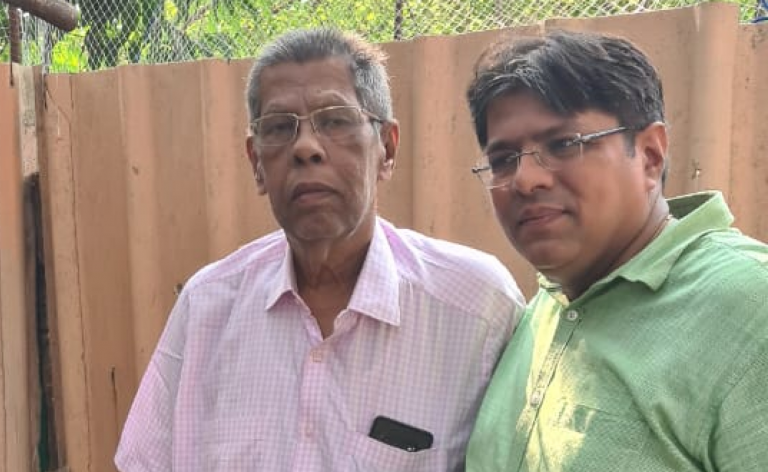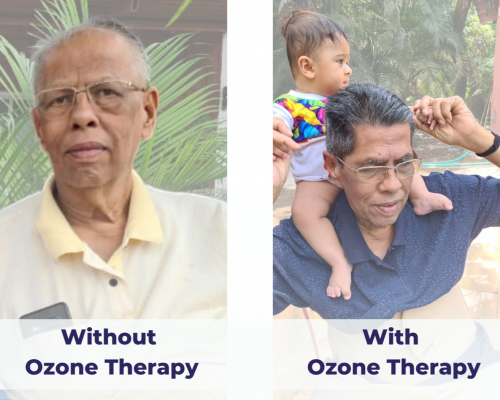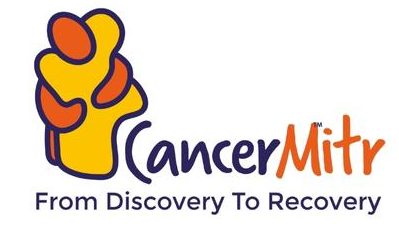From Palliative Care To Cancer Recovery: Atul Thakkar Shares His Father’s Cancer Journey
The fight against a deadly disease like cancer takes a toll on an individual, testing their will and strength. A lot of patients refuse cancer treatment, dreading the severity of the pain and physical and mental health challenges that come with it. It is no secret that cancer treatment methods like chemotherapy cause adverse negative effects and how it affects a patient’s loved ones. Nothing comes easy in life, and a condition like cancer puts a person and their near and dear ones in jeopardy. Every issue may be solved in a variety of ways, and the current generation can access many options for coping with cancer and its treatment’s side effects. What is required is careful planning of the treatment process.
Such is the case with Mr. Rajendra Thakkar, a businessman who continues to fight stage III pancreatic cancer. Mr. Atul Thakkar, the son of Rajendra Thakkar, shared his father’s journey dealing with cancer with the CancerMitr team.
Mr Rajendra Thakkar, a diabetic patient, suffered from severe fatigue and health issues related to obstructive jaundice. He and his family ignored these symptoms for a long time until it was too bad to be ignored.
“He was unusually tired. The fatigue was so bad that he eventually found it difficult to pass stools. We knew that something was wrong,” he said. His father was taken to the hospital, where he underwent a series of tests, including the tumour marker test, which revealed that he had stage III pancreatic cancer.
In general, stage III cancer refers to a condition where the malignant tumour is significantly big and has invaded the nearby tissues, blood vessels or lymph nodes, but they haven’t metastasised (shown up in distant sites) yet. Often, patients exhibit severe cancer symptoms when they are in stage III or stage IV (where cancer has metastasised to other organs or tissues, including the human brain).
“The doctors were not hopeful in my father’s case. He is a diabetic patient with signs of obstructive jaundice. The tumour was locally advanced and non-operable. It was 4 cm in size, and the tumour marker test revealed 11000 ng/ml,” he said.
The doctors were not confident about putting him under the knife, so he received palliative chemotherapy, which is typically used to assist patients in coping with the severity of cancer. Palliative care focuses on the patient and their family’s quality of life, and oftentimes, it is meant to prepare them for hospice care. Mr Rajendra Thakkar underwent ten cycles of chemotherapy over a period of nine months. But he and his family knew that they couldn’t stop at that.

"I never believed that things were hopeless in my father's case."
“I contacted Mansi and Niyati (founders of CancerMitr) and sought their advice. They motivated us actually to fight the disease while we could. They encouraged us to seek integrative therapies to overcome the side effects,” he said.
The nerve-racking side effects of chemotherapy include nausea and vomiting. Constant feeling of sickness discourages patients from having food. Integrative therapy involves treatment processes that help in coping with the side effects of cancer and cancer treatment. It involves physical exercises, mental health counselling, diet and nutrition, and supportive therapies like ozone therapy, yoga, ayurveda treatment, etc.
Along with chemotherapy, his father underwent a rigorous diet and intermittent fasting to cope with the adverse effects. Mr Thakkar found it difficult to eat solid food, so he had more fruit and vegetable juices. He was also given more alkaline and oil-free diet to help with the digestion process.
“He strictly follows the intermittent fasting routine. He had breakfast around 9 am and had no food after 6 pm. It helped a lot in terms of dealing with the chemo-related symptoms,” said Athul Thakkar.
His father also underwent Ayurveda treatment, yoga therapy, and Ozone therapy during chemo rounds.
Ozone therapy is the medical procedure where ozone is delivered to the human body to increase oxygen levels in order to fight cancer cells. “Let me tell you how effective they were. For around two weeks, when he didn’t undergo ozone therapy, he suffered from mouth blisters and hair fall. Hair fell off his eyelashes and eyebrows! But subsequent ozone therapy led to a polar opposite result,” he said.
Ozone gas forms in the atmosphere, and it is highly reactive. Ozone therapy assists the effectiveness of chemotherapy by enhancing the healing of the normal cells and making the tumour more receptive to the treatment.
“It is like tricking the tumour by providing extra oxygen, pretending to make peace with it, and then helping the nearby cells heal better. Chemotherapy then destroys the tumours,” explained Niyati Mehta, co-founder of CancerMitr. Ozone therapy helped in detoxifying the effects of the chemotherapy by flushing out the toxins. In addition to that, the fasting process helped in keeping the WBC count in check.
With chemotherapy and supportive therapies, Mr Rajendra Thakkar’s pancreatic cancer tumour shrank from 4 cm to 2.5 cm. It was small enough for surgery
"Like that, my father's treatment went from palliative to curative."

Today, over a month after the surgical removal of the tumour, Mr Thakkar is doing good. One of the important things he did was keep himself busy with work before, during, and after the treatment process. He stopped the ozone therapy around the time the medical experts opted for the surgical removal of the tumour, but continued to follow intermittent fasting and diet.
“It’s like having a strong purpose. You never stop moving forward,” said Atul Thakkar. Thanks to his persistence, it is now possible for Mr Thakkar to be cancer-free. “My father was discharged within a week after surgery. Even the doctors were astonished because, at the time, he was a diabetic patient in his mid-60s. With a strong will, you can achieve anything in life,” he said.
Mr Atul Thakkar thanks the CancerMitr team, particularly Niyati and Mansi, for inspiring him and his family to move forward. “We didn’t bend the knee to the ultimate fate after the pancreatic cancer diagnosis where the doctors told us that he didn’t have that long to live. I want to thank CancerMitr for feeding our hope and courage. My father continues to fight the disease, and I am proud of how far he has come,” he said.
Mr Atul Thakkar also highlights the importance of early testing. While Mr Rajendra Thakkar was receiving cancer treatment, his family underwent testing and screening for cancer, including imaging tests. Early detection increases the chance of survival by 92-100%. Since most of the symptoms don’t show up until later stages, people should consider taking these tests once every six months or a year after a doctor’s consultation.
Contact CancerMitr for various packages.
Our counsellors offer the required guidance to our patients in pursuit of good health.
CancerMitr offers a holistic plan to deal with all cancer-related challenges, from discovery to recovery.

